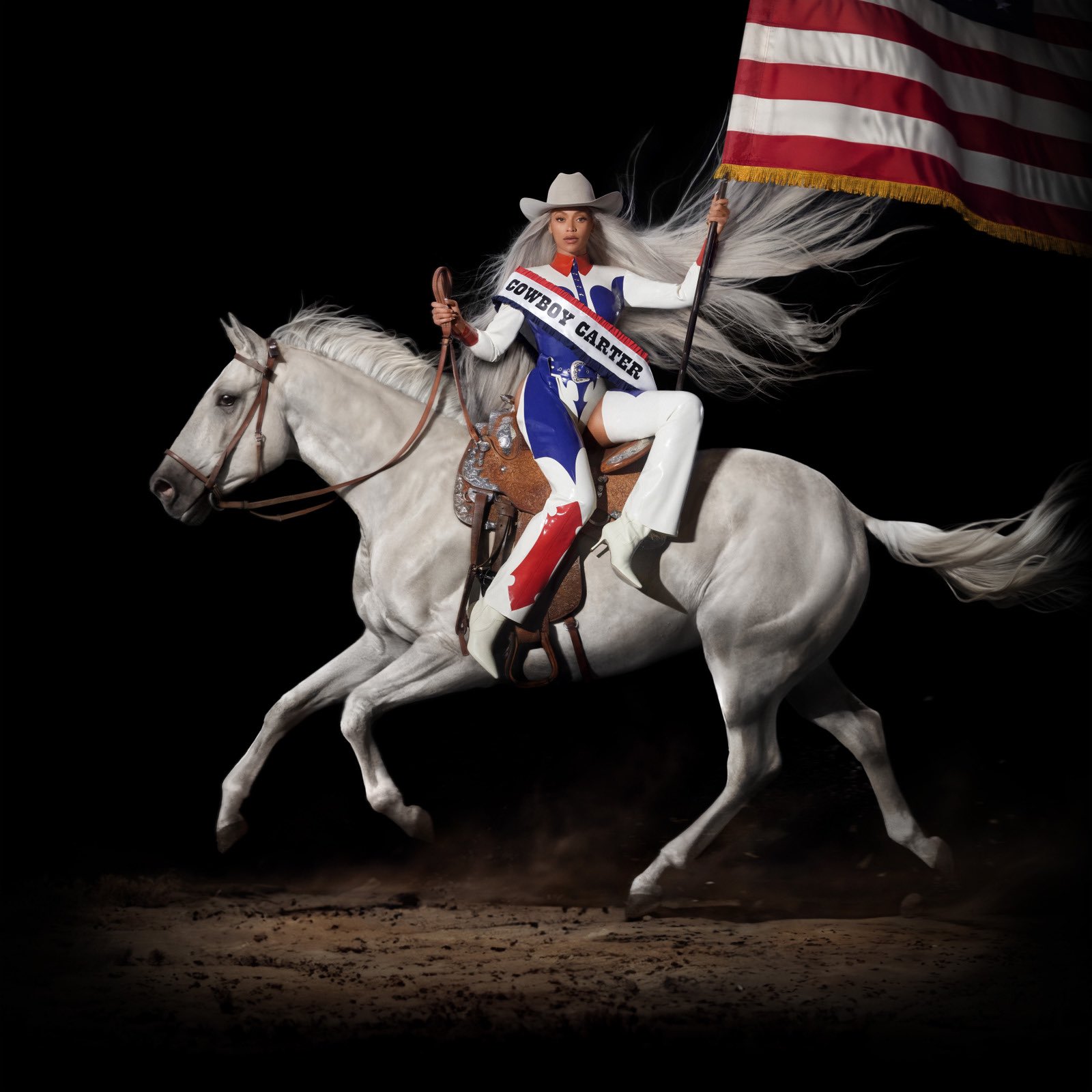She had to tell us it’s a Beyoncé album. When the first two singles were released, we didn’t even have the Renaissance sequel’s complete title, yet people were already making a lot of assumptions. Some country music stations refused to play ‘Texas Hold ‘Em’, causing social media outrage; then, despite the controversy underlining her point about Black artists’ place in the genre, Beyoncé declared that Cowboy Carter is not a country album. The implication, of course, is that it’s so much more than that, which is true. If Renaissance was a celebration of house music’s Black queer roots, Cowboy Carter serves as less of an homage than a reclamation of the Black origins of country music, a style whose limitation it seeks to transcend. Beyoncé’s argument was clear enough in the statement she shared about the album, but she had to reiterate it in one of the album’s interludes: “Genres are a funny little concept, aren’t they? In theory, they have a simple definition that’s easy to understand… But in practice, well, some may feel confined.”
Like with so much Cowboy Carter, what’s important is less the statement itself than the framing and delivery: in this case, the words come from Linda Martell, the first Black woman to play the Grand Ole Opry, who acts as one of the album’s hosts alongside fellow country pioneers Dolly Parton and Willie Nelson. Beyoncé has once again gathered an impressive array of guests, from stars like Miley Cyrus and Post Malone to lesser-known artists like Tanner Adell and Shaboozey. But part of what made Renaissance so uniquely refreshing was that it pushed Beyoncé to cede ground to the sounds and voices it featured, which is less practicable in a more song-based format. Of course, her sheer vocal prowess is more than capable of handling that added weight, even when the songs she tackles are hugely popular, but the results don’t always stick. Her performances on ‘Jolene’ and ‘Blackbird’ are unsurprisingly impeccable, but while her take on ‘Blackbird’ – a song Paul MacCartney wrote in part as a response to the Civil Rights movement – feels entirely right if not groundbreaking, the lyrical alterations in ‘Jolene’ erase the desperation in a way that dulls its impact.
With barely any close attention to the music, it’s just as easy to heap praise on Cowboy Carter as it is to criticize it. It’s an audacious, affecting, and meticulously produced album; it’s also bloated, occasionally underwhelming, and despite the AM radio schtick holding it together, nowhere near as seamless as Renassaince. It is expertly curated, but given the scope and sprawl of the project, the just-fine high-profile duets could have made space for more underappreciated talent. At times, it feels more like a survey of rather than an attempt to recontextualize genre, especially when it caters to contemporary trends (‘Levii’s Jeans’). Sprawling and incoherent as it may be, though, listening to Cowboy Carter is never going to be as exhausting as arguing about its ideas, structure, and influence. We can all agree Beyoncé is still very good at using these wisely. What prevents me from experiencing the album as a masterpiece on the same level as Renassaince is the moments when it dulls, which happens early on with the acoustic cuts ‘Protector’ and ‘My Rose’; part of what keeps it engaging is that they don’t last very long.
What Cowboy Carter lacks in momentum and focus, it makes up for in theatricality and ambition. Upon its release, ‘16 Carriages’ struck me as the better of the two singles, not just because of its potent reflection on her days with Destiny’s Child, but because of the emotional dimension it brings to the ballad structure she generally leans into a little too heavily here. ‘Daughter’, which sees her suddenly soaring into a passage from the 18th-century aria ‘Caro Mio Ben’, is even more striking, and though she hangs low on ‘Just for Fun’, her interplay with country singer Willie Jones renders it the most electrifying duet on the album. The less predictable, the stronger it is.
But once Beyoncé illustrates Martell’s point with ‘Ya Ya’, where the intensity of her performance overpowers even the brilliantly integrated interpolations of ‘These Boots Are Made for Walking’ and ‘Good Vibrations’, you can finally see Cowboy Carter’s full potential. The stretch that follows is so obviously inventive, whether careening between genres like ‘Tyrant’, blending them like ‘Riiverdance’, or elevating a single element like the funk bassline on ‘Desert Eagle’. ‘Ya Ya’ isn’t captivating just because it lends credence to the rumours that the next installment in the Renaissance trilogy will be rock ‘n’ roll-inspired. It carries forward the charge and fluidity, more than just the historic and reclamatory value, at the core of its vision, which the rest of the album almost makes you forget. It makes sense for it to arrive as a unique progression of the more classic sounds she explores earlier, but at least the spirit could have been there all the way through. Still, just as you think you know where it’s going, Cowboy Carter not only throws you off, but raises the bar. She didn’t have to do that; at the same, it all feels perfectly planned. It’s a Beyoncé album, after all.
